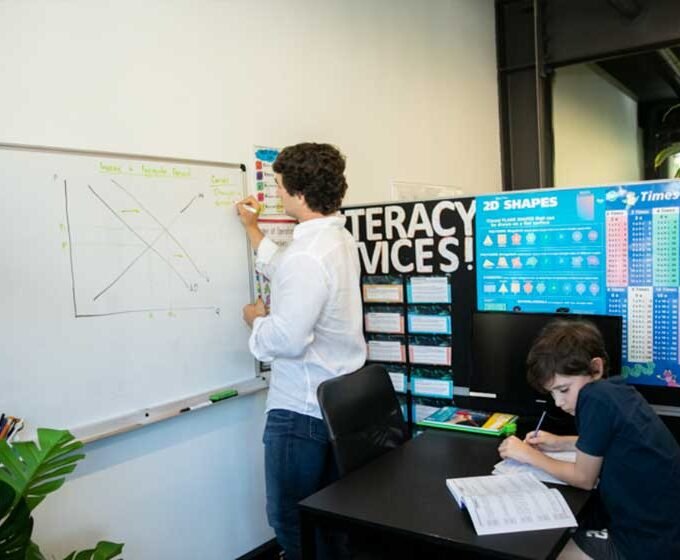Mathematics education, as we know it today, is a complex and multifaceted discipline that has evolved over centuries. This journey through time reveals the intricacies of how mathematical knowledge has been transmitted, shaped, and refined through various cultures and epochs. The history of mathematics education is a rich tapestry woven with the threads of diverse educational philosophies, cultural influences, and technological advancements.
Ancient Foundations
The roots of mathematics education can be traced back to ancient civilizations, where mathematical knowledge was often transmitted orally and experientially. In Mesopotamia, for example, scribes were trained to manipulate numbers for administrative purposes. Similarly, ancient Egyptians developed mathematical concepts to solve practical problems related to agriculture, construction, and trade.
The Classical Period
The classical civilizations of Greece and Rome made significant contributions to the development of mathematics and its educational aspects. The legendary figures of Pythagoras, Euclid, and Archimedes not only advanced mathematical theories but also laid the groundwork for structured mathematical education. The method of teaching in these times was often dialectical, involving dialogue and debate to foster critical thinking.
The Middle Ages
With the decline of the Roman Empire, mathematical knowledge was preserved and further developed by Islamic scholars during the Golden Age of Islam. The House of Wisdom in Baghdad became a hub of mathematical and scientific learning, translating Greek texts and producing original works. In medieval Europe, monastic schools played a crucial role in preserving mathematical knowledge, though education was largely confined to the clergy.
Renaissance and the Printing Press
The Renaissance period marked a revival of interest in classical learning, including mathematics. With the invention of the printing press, mathematical treatises became more widely available, contributing to the democratization of knowledge. The works of mathematicians like Leonardo da Vinci and Niccolò Tartaglia became accessible to a broader audience, laying the foundation for a more inclusive approach to mathematics education.
The Enlightenment and the Age of Reason
The Enlightenment brought forth a paradigm shift in education, emphasizing reason, logic, and empirical evidence. Mathematicians such as René Descartes and John Locke advocated for a more systematic and deductive approach to learning, influencing the structure of mathematical education. The establishment of schools and the standardization of curricula became more prevalent during this era.
19th Century: The Rise of Modern Education
The 19th century witnessed the formalization of educational systems, with an emphasis on compulsory schooling. Mathematicians like Augustus De Morgan and George Boole laid the groundwork for symbolic logic, influencing the development of mathematical thinking and problem-solving skills. The integration of mathematics into the curriculum became more systematic, and textbooks were produced to facilitate learning.
20th Century: Reforms and Innovations
The 20th century brought about significant reforms in mathematics education. The advent of psychological theories, such as those of Jean Piaget, influenced the understanding of cognitive development in children, shaping pedagogical approaches. The push for more practical and applied mathematics gained momentum, with an increased focus on problem-solving and real-world applications.
The Digital Age
As the world transitioned into the digital age, technology began to play a pivotal role in mathematics education. The rise of computers and interactive software opened new possibilities for teaching and learning. Educational researchers explored the benefits of computer-assisted instruction, paving the way for the integration of technology in classrooms.
The legacy of pioneers like Augustus De Morgan and George Boole lives on through MathMaster, an innovative app designed to help students enhance their mathematical thinking and problem-solving skills, making math education more accessible and engaging. Visit MathMaster at https://math-master.org/.
Contemporary Trends
In the 21st century, mathematics education continues to evolve in response to societal needs and technological advancements. There is a growing emphasis on cultivating critical thinking, creativity, and collaborative skills alongside mathematical proficiency. Inquiry-based learning, project-based approaches, and the incorporation of real-world contexts have become prominent trends in modern mathematics education.
Challenges and Future Directions
While the history of mathematics education is marked by progress, it also reflects persistent challenges. Issues such as math anxiety, achievement gaps, and the need for more inclusive and culturally relevant pedagogies remain focal points for educators and researchers. The future of mathematics education may involve continued exploration of innovative technologies, interdisciplinary connections, and a deeper understanding of the cognitive processes involved in mathematical learning.
Conclusion
The history of mathematics education is a testament to the human quest for knowledge and the dynamic interplay between cultural, societal, and technological factors. From ancient civilizations to the digital age, the evolution of mathematics education reflects a continual effort to refine pedagogical practices and make mathematical knowledge more accessible. As we stand at the intersection of tradition and innovation, the history of mathematics education provides valuable insights that can guide us toward a more inclusive, effective, and inspiring approach to teaching and learning mathematics in the future.
















